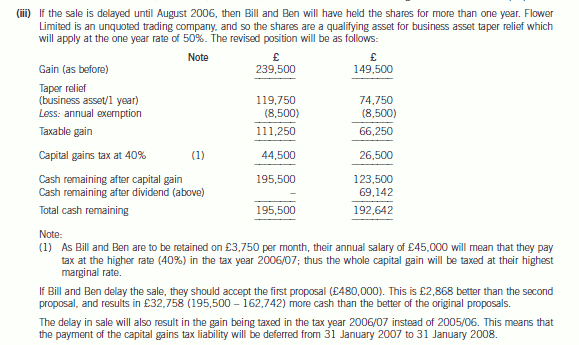山西省考生:ACCA考试的科目和报考规定是什么呀?
发布时间:2020-01-10
当有些小伙伴正在如火如荼地备考ACCA考试的时候,千万不要忘了最重要的一个步骤,那就是考试报名。目前正处于ACCA考试常规报名阶段,51题库考试学习网提醒大家想要报考2020年ACCA考试的考生要抓紧时间报名了哦!51题库考试学习网帮助大家汇总了ACCA官网上发布的部分内容,来看看是不是你所需要的呢?
按照规定,学员在每个考季最多可报考4个科目(包括重考科目和新科目)并且每年报考不超过8门新科目,保证每门课程都有充足的学习时间。另外,学员必须按照以下3个阶段的顺序来报考ACCA科目。
知识模块的科目:F1-F3;
技能模块的科目:F4-F9(F4ENG/GLO 开启随时机考);
专业阶段的科目:P1, P2, P3 (and any two from P4, P5, P6 and P7)。
以上3个阶段内的考试科目可不分先后顺序报考,但如前一阶段有未通过的科目,将不能跳开此科目仅报后阶段科目。
ACCA每年会根据会计准则及事实的需要调整教学大纲,当年的考试会以最新的教学大纲作为考核内容,ACCA考官也会不定期的在ACCA官方网站上发表考官文章,帮助学生解析考试当中的一些难点和重点,ACCA教材也应随着考试大纲的不断变化,每年出最新版本,历年考题答案应随着教材变更后,调整最新答案。
学生在拿到最新教材后可以进行逐章逐节的学习,在掌握了每章节知识点后,将历年考题作为复习重点,充分的加以练习,达到熟练的程度,以保证考试的顺利通过。
与此同时,学生可以按照自身的需求,选择一些与教材紧密结合的辅导课程,由讲师为同学们总结考试重点及难点,深入分析、拓展思维,为学生节省时间,并且带领同学们一起做历年考题,学习考官文章,共同克服备课过程当中出现的各种困难增加学习效率及通过率。
除了认真备考熟练掌握知识点以外,ACCA对考试技巧,答题速度及考场的应试技巧也有很高的要求,很多同学复习阶段已经熟练的掌握知识点,但是考场应变能力差,考试时间没能合理分配,最终也很容易造成考试失败,正确的备考、应考方法也因此成为了考试顺利通过的关键,因此在备考经验不是很丰富的同学可以选择相关课程跟随老师一同学习。
以上信息就是关于ACCA的考试科目和报考规定的介绍,希望对正在努力备考的ACCAer们有所帮助。目前的ACCA证书含金量是相当高的,各位小伙伴不要觉得考试很难就放弃,付出的努力和得到的结果是成正比的,大家要坚持努力的复习学习,克服身边的一切诱惑!当你拿到证书的那一科你就明白所以的努力都是值得的。
下面小编为大家准备了 ACCA考试 的相关考题,供大家学习参考。
(iii) State how your answer in (ii) would differ if the sale were to be delayed until August 2006. (3 marks)

In 2014 Mr Yuan inherited an estate of RMB2 million from his uncle who had died two months earlier.
What is the correct treatment of the estate income for individual income tax purposes?
A.The estate income is not taxable
B.The estate income will be taxed as occasional (ad hoc) income
C.The estate income will be taxed as other income
D.The estate income will be taxed as service income
3 Damian is the finance director of Linden Limited, a medium sized, unquoted, UK trading company, with a 31 July
year end. Damian personally owns 10% of the ordinary issued share capital of Linden Limited, for which he paid
£10,000 in June 1998. He estimates that the current market value of Linden Limited is £9 million and that the
company will make taxable profits of £1·4 million in the forthcoming year to 31 July 2007.
(a) Damian believes that Linden Limited should conduct its activities in a socially responsible manner and to this
end has proposed that in future all cars purchased by the company should be low emission vehicles. The sales
director has stated that several of his staff, who are the main recipients of company cars, other than the directors,
are extremely unhappy with this proposal, perceiving it as downgrading their value and status.
The cars currently provided to the sales staff have a list price of £19,600, on which Linden Limited receives a
bulk purchase discount of 6% from the dealer, and a CO2 emission rate of 168 grams/kilometre. The company
pays for up to £400 of accessories, of the salesmen’s own choice to be fitted to the cars and all of the running
costs, including private petrol. The cars are replaced every three years and the ‘old’ cars are sold at auction,
because they are high mileage vehicles.
The low emission cars it is proposed to purchase will have the same list price as the current cars, but the dealer
is only prepared to offer a bulk discount of 5% on these vehicles. Damian does not propose to make any other
changes to Linden Limited’s company car policy or practice.
Required:
(i) Explain the tax consequences of the proposed move to low emission vehicles for both the individual
salesmen and Linden Limited, illustrating your answer by means of relevant calculations of the tax and
national insurance (NIC) savings arising. (9 marks)
(a) (i) Individual salesmen
The taxable benefit is determined by the list price of the vehicle plus the cost of the accessories (£20,000) and the CO2
emission rate. The current vehicles have a CO2 emission rate of 168 grams/kilometre, so the benefit will be calculated
at the rate of 20% ((168 – 140)/5 + 15), resulting in a total annual car and car fuel benefit charge of £6,880 (20,000
x 20% + 14,400 x 20%). The low emission vehicles will be chargeable at the basic percentage rate of 15% resulting
in a total annual car and fuel benefit charge of £5,160 (20,000 x 15% + 14,400 x 15%). The salesmen will thus
make an annual income tax saving at their marginal rate of tax, i.e. £378 (1,720 x 22%) if they are basic rate taxpayers
and £688 (1,720 x 40%) if they are higher rate taxpayers.
Linden Limited
The current vehicles will be classed as ‘expensive’ cars based on the discounted list price plus the cost of the accessories
of £18,824 (19,600 x 94% + 400). The annual writing down allowances will thus be restricted to £3,000 throughout
the period of ownership, but there will be no restriction of the balancing allowance available on disposal. The low
emission vehicles will be eligible for a 100% first year allowance of £19,020 (19,600 x 95% + 400), but there will
also be a balancing charge on disposal equivalent to the sales proceeds. Therefore, the total of the allowances available
over the life of the cars will be effectively the same in both cases. As a single company with taxable profits of
£1·4 million, Linden Limited will pay corporation tax at the small companies marginal rate of 32·75% in the year to
31 July 2007, giving a tax benefit in that year of £5,247 for each low emission car purchased ((19,020 – 3,000) x
32·75%).
The company will also make an annual saving in terms of the Class 1A national insurance contributions payable on the
salesmen’s benefits of £220 ((6,880 – 5,160) x 12·8%). But, as these Class 1A contributions are deductible for
corporation tax, the net saving will only be £205 (220 x (100 – 32·75)%).
As the VAT liability payable on the provision of private fuel is based on engine capacity (not the CO2 emission rate) this
will not necessarily be affected.
声明:本文内容由互联网用户自发贡献自行上传,本网站不拥有所有权,未作人工编辑处理,也不承担相关法律责任。如果您发现有涉嫌版权的内容,欢迎发送邮件至:contact@51tk.com 进行举报,并提供相关证据,工作人员会在5个工作日内联系你,一经查实,本站将立刻删除涉嫌侵权内容。
- 2020-01-10
- 2019-07-21
- 2020-04-17
- 2020-01-10
- 2020-02-29
- 2020-01-11
- 2020-04-16
- 2020-03-14
- 2020-04-15
- 2020-01-03
- 2020-01-10
- 2020-01-09
- 2020-04-22
- 2020-01-29
- 2020-03-17
- 2020-04-07
- 2021-04-23
- 2020-04-16
- 2020-04-14
- 2020-03-08
- 2020-03-08
- 2020-01-09
- 2020-05-01
- 2020-02-14
- 2020-01-10
- 2020-01-10
- 2020-03-21
- 2020-04-24
- 2020-03-04
- 2020-02-29